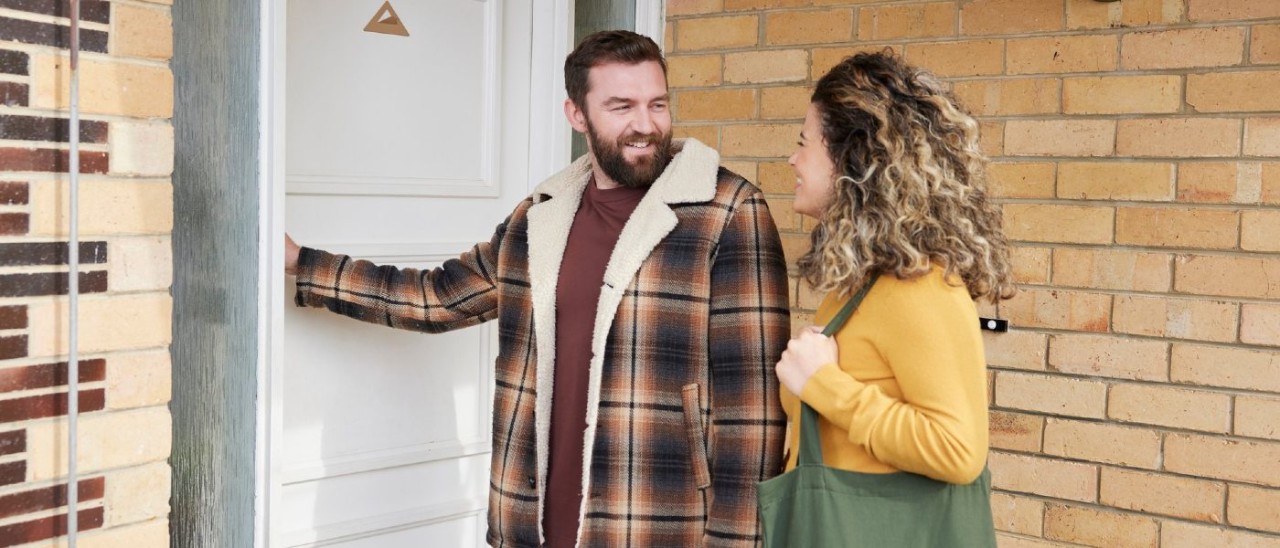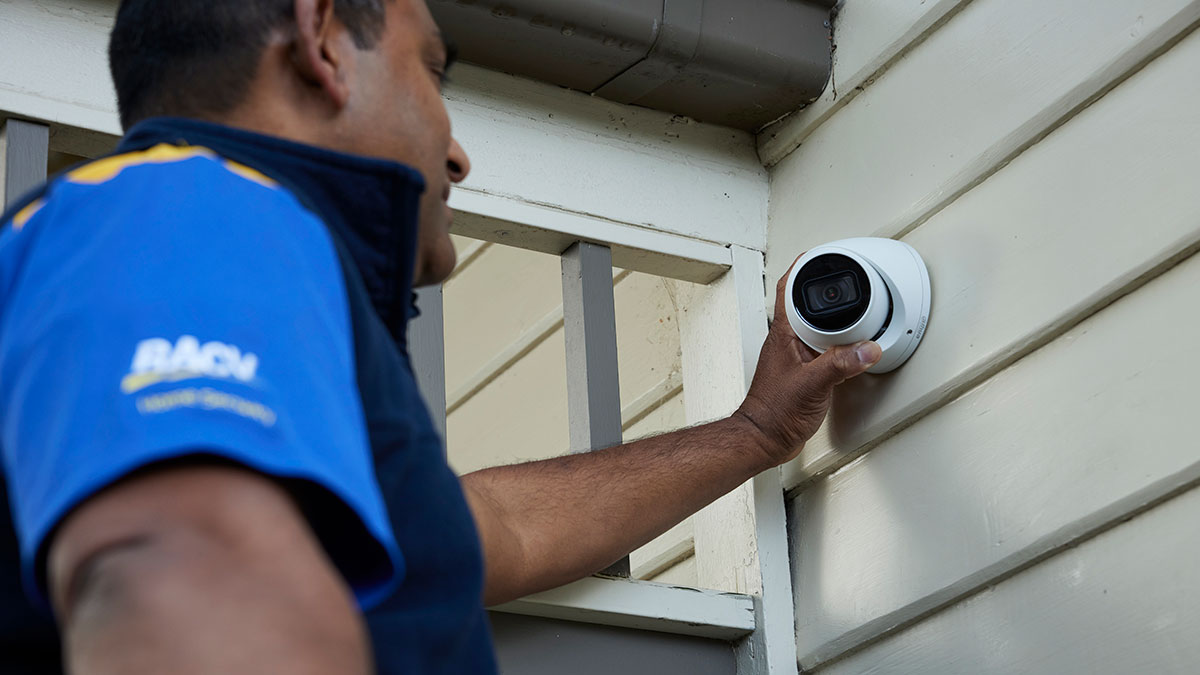A townhouse could be the perfect choice if you're downsizing from a traditional home or moving up from an apartment. Whether you’re a first-home buyer, investor, renter or a long-time property owner considering your options, here’s a handy guide to townhouses.
The questions you must ask when buying property in Victoria

Whether you’re a first home buyer, budding investor or considering a property under strata, ask these questions to help make a confident purchase decision.
Buying property is one of the most stressful life events you can experience. But asking yourself – or the vendor’s real estate agent – the right questions can go a long way to relieving some of your doubts and help you make a confident purchase.
While emotions can run high, it’s vital to keep a level head before committing to an offer. Marko Salapura, Senior Manager for Inspections Delivery at Rapid Building Inspections, says it’s important to look beyond the surface when considering a house.
“A property might present beautifully during an open inspection, but that doesn’t mean it’s free from issues,” Salapura says. “Only a thorough building and pest inspection can reveal problems hidden beneath the surface, such as structural defects or termite activity, that could cost you tens of thousands to repair.”
Whether you’re looking to buy your own home or an investment, these are the most important questions to ask when buying property.
In this article:
Questions to ask when purchasing a property in Victoria
Before inspecting a property
Where do I want to live?
Deciding where you want to live is one of the most important questions to ask yourself when purchasing. When considering this question think about not just the suburb, but also the type of housing you want. For some, a four-bedroom detached house is non-negotiable but for others, a small townhouse or apartment is just as good.
Your lifestyle and budget are other factors to account for when deciding where you want to live. Consider a location’s proximity to your workplace, friends and family, as well as whether you want access to amenities like public transport, parks, schools or childcare, shops, cafes, restaurants or bars.
Remember: it’s much easier to make changes to your house than it is to make changes to your house’s location.
What is my budget?
Understanding your budget when buying a property is more than just knowing what your maximum purchase price can be.
You budget should also account for stamp duty, council rates, average utility bills, and any strata fees. You will also have to account for your conveyancing fees and moving costs (whether you choose to hire professional movers or do it yourself).
Read more: How to improve energy efficiency at home.
Also consider any upfront maintenance costs to make the property liveable if you plan on occupying it. Conversely, investors renting the home out need to ensure it meets the minimum rental standards.
Getting yourself a building and pest inspection can help identify any upfront or future maintenance costs so you’re not caught short. “The most costly problems in a home are often the ones that can’t be seen with the naked eye,” Salapura says.
“An experienced inspector will check areas you might overlook, ensuring you understand the true condition of the property before you commit to buying it.”
What have similar properties in the area sold for?
Doing some research before hitting the open homes gives you leverage when negotiating with agents. A home that’s listed at the top end of your budget, but also higher than average for the area, makes it more likely that the vendor may consider your offer.
Knowing the average price of similar properties in the area also helps inform your budget. Maybe you can’t afford a three-bedroom house in one suburb, but you may be able to afford a three-bedroom duplex.

Make sure to factor in costs like upgrading the security arrangements or fixing any faults when budgeting for your new property.
At the open home
When was the property built?
Knowing when a property was built can help you gauge the maintenance it might need in the future. It may also hint at any dangerous or outdated features. For example, buyers don’t need to worry about asbestos insulation in a house built in 2010, but they would in 1970s build.
Read more: The regular home maintenance tasks that can help with an insurance claim.
For recent builds, it’s important to know when the home was constructed so you can determine if it’s still under its building warranty. Repair and maintenance issues can arise unexpectedly with any home, however, so having an active Emergency Home Assist membership can help provide peace of mind as a new homeowner.
Is there an owner’s corporation and body corporate what are the fees?
Units, apartments and townhouses can all include an owner’s corporation or be part of a strata title. This is made up of all the individuals who own the individual homes within the housing complex and you automatically join the owner's corporation when purchasing a home under strata.
It’s important to enquire as to the strata fees when considering buying a home as they can potentially add a lot onto the annual costs of owning the property. As a general rule, complexes with more communal facilities (carparks, lifts, gyms, pools etc) are likely to have higher strata fees than a more bare-bones site.
Are the vendors open to an offer before auction?
Just because a property is up for auction doesn’t mean it will end up going to auction. Even if it goes to auction it doesn’t guarantee it’ll reach reserve and sell. Vendors usually have to pay for an auctioneer in addition to their estate agent – this means they may be willing to entertain a pre-auction offer to save auctioneer fees. Having a building and pest inspection done prior to placing an offer can help provide leverage to you as the buyer.
How long has the property been on the market?
A property that has been on the market a long time isn't necessarily a red flag. There are many reasons it may be taking longer to sell, including a downturn in the market, poor marketing, a unique look or features (which might turn off some buyers but be right for you), or the vendors simply holding out for a specific price.
However, if a property has been on the market for a while (or even gone to auction and failed to sell) it’s worth having a closer look at why. It could mean there are hidden defects that have been picked up during property inspections, or that there are unfavourable developments putting buyers off the area.
What is the property’s security like?
A secure property helps protect your belongings and financial assets. While inspecting any potential property purchase be sure to check what the security is like. Are there locks on all external doors and windows? Is there a deadbolt on the doors? Does the property come with a security system, burglar alarms, sensor lights or cameras (and if yes, do they work)? How secure is the garage?
Read more: The best window locks for home security.
If you’re not impressed with the current security arrangements be sure to factor in the cost of upgrading them if you decide to make an offer.
Don’t ignore security if you’re buying an apartment either. For the year ending March 2025, almost 10,000 thefts were recorded at apartments, flats and units in Victoria according to the Crime Statistics Agency. Check what the common space security arrangements are (do you require a key, pin code, or swipe card to enter the main building etc), as well as what lighting, mail room and garage security is like.
Before signing the contract
Have you completed a building and pest inspection?
A property might look perfect at face value but be hiding issues beneath a new coat of paint and shiny staging furniture.
In Victoria, the onus is on the buyer to arrange a building and pest inspection if they want one. While it may seem like another upfront cost during an already expensive enterprise, these inspections can provide good value when compared to the potential costs of undetected property problems.
A reputable building inspection will check the property thoroughly and provide you a report on any major defects inside or outside the home, as well as any minor defects, safety hazards and details on the construction of the home. They usually check for the presence of moisture (a potential indicator of mould) as well as any evidence of timber pests like termites.
Read more: What is a dehumidifier and how can it help prevent mould?
If the property is going to auction, you’ll need to arrange a building and pest inspection prior to auction day. If it’s a private sale, you can make an offer with a clause in the contract that a building and pest inspection must be conducted.
Beyond allowing you to make an informed decision about purchasing a property, Salapura says conducting a building and pest inspection can also work in your favour as a buyer.
“A pre-purchase building inspection doesn’t just tell you what’s wrong with the property – it gives you the confidence to negotiate, budget for repairs, or even walk away if the risks outweigh the rewards.”
What is the zoning for the property?
Planning zones determine what specific parcels of land can be used for, whether it be residential, industrial or commercial use.
It’s important to understand the zoning both for any property you’re considering purchasing, as well as the zoning for the property’s surrounding areas. You might love having a house that backs onto a reserve but think twice if you learnt that reserve is actually zoned for industrial development.
The Department of Transport and Planning’s VicPlan website allows you to input any address and view the current zoning for that property.
The website also lets you view any overlays that might be on a property. Overlays signify that the impacted land has a special feature or additional planning controls that may affect what you can do with the property. Not every property has an overlay, while other properties might have multiple overlays.
Some overlays include:
- Heritage overlays
- Flood overlays
- Bushfire management overlays

If the property has a pool make sure that it is registered with the local council and that the vendor provides a barrier compliance certificate. Image: Matt Harvey.
Are there any material facts to disclose?
In Victoria, estate agents and vendors are required to disclose any material facts. These are factors which could influence whether or not potential buyers purchase a property (or what price they would purchase it at). They can include:
- Vehicle access restrictions
- A history of extreme violence (e.g. homicide)
- A history of manufacturing substances such as methamphetamine
- Use as a defence or fire brigade training site using hazardous materials
- Building work that was done without a permit
- The occurrence of a flood or bushfire
- Prior testing that has revealed structural defects, termite infestations, combustible cladding, asbestos, or contamination
- The underlying cause of a physical defect
- Facts about the surrounding neighbourhood that could affect the use and enjoyment of the property
Material facts must be disclosed before an auction or (for private sales) before a buyer signs the contract of sale. There are severe penalties for failing to disclose material facts.
Does the granny flat, pool or spa have the correct council approvals?
Properties that have been renovated, extended, or had a small secondary dwelling built on them (aka a granny flat) should be checked to ensure the correct council approvals were obtained for these works. Unapproved works to a property can become your responsibility if you commit to a sale.
Ask for the sale contract – otherwise known as a Section 32 statement – and review it by yourself or with your conveyancer to ensure any works have been done with council approval. You can also contact the relevant council directly to check if any works were done with approval.
As a water safety measure, all pools and spas in Victoria must be fitted with a compliant and well-maintained safety barrier. If the property you’re considering contains a pool or spa you should, check that it has been registered to the appropriate council and that it has been inspected and provided with a barrier compliance certificate.
What is the property like at all hours?
Most open homes occur during daylight hours on Saturdays, which may not always paint an accurate picture of what residing at the property may be like all the time.
Before signing a contract it’s a good idea to revisit the property a few times on different days and at different times to get a more complete picture. If you drive to work, what is road access like during peak hours on a weekday? Is it quiet at night, or do the neighbours like to party? For apartments, what are the noise levels like from common spaces (hallways, lifts) during the busiest usage periods?
If possible, see if you can arrange a special inspection with the vendor's real estate agent at different times and days. Even if you can't arrange a private inspection, visiting the location of the property (i.e. without going inside) can help you gauge if the home is right for you.


